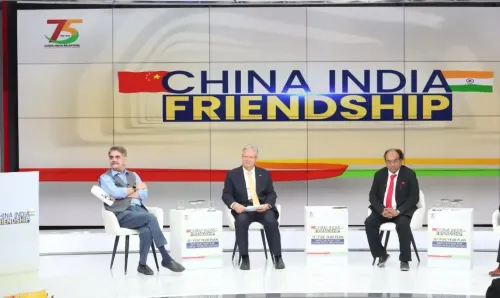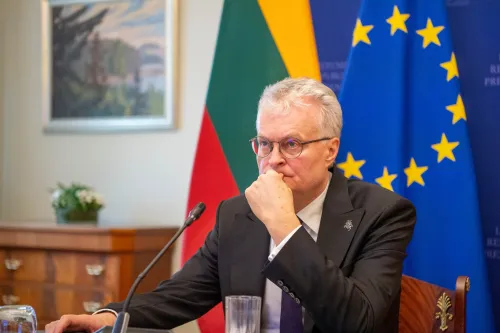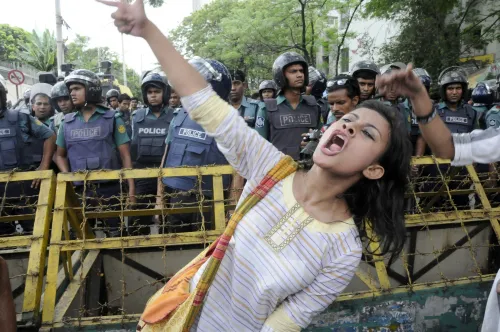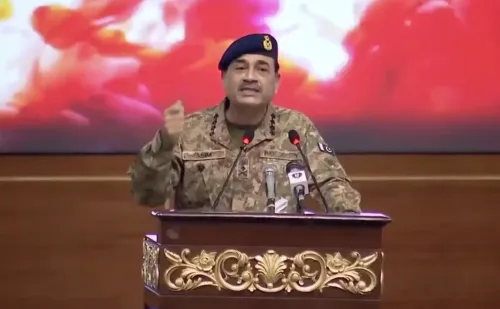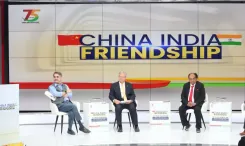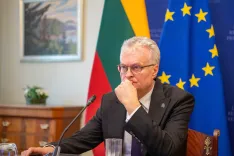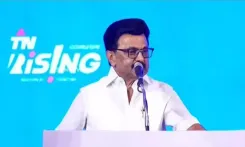South Korea's Investigation Team to Call on President Yoon Over Insurrection Allegations
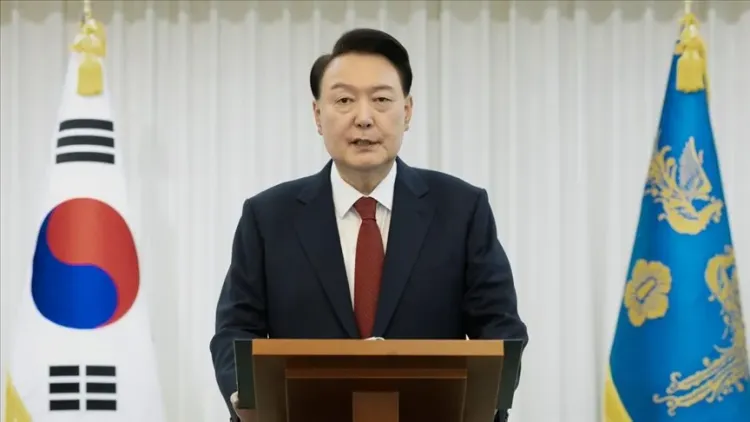
Seoul, Dec 16 (NationPress) The joint investigation team of South Korea is set to summon the impeached President Yoon Suk Yeol on Wednesday regarding allegations of insurrection and abuse of power, according to multiple media reports released on Monday.
The team is scheduled to serve a summons to the presidential office, requesting Yoon's presence for questioning on December 18 as part of the investigation into Yoon's imposition of martial law, as reported by Xinhua news agency.
This investigative team is made up of the Corruption Investigation Office for High-ranking Officials (CIO), the National Office of Investigation (NOI), and the Defence Ministry's investigation headquarters.
The National Assembly passed the second motion to impeach Yoon on Saturday, which has been sent to the constitutional court for deliberation, a process that can take up to 180 days, during which Yoon's presidential powers are put on hold.
Yoon declared an emergency martial law on the evening of December 3, but the National Assembly revoked it just hours later.
Investigative authorities have named Yoon as a suspect in the insurrection charge, marking him as the first sitting president to be prohibited from leaving the country.
Reports indicate that President Yoon did not comply with a summons from prosecutors looking into him for charges including insurrection, as he faces impeachment following the martial law declaration.
Yoon was sent a summons on Wednesday, requesting him to appear for questioning at 10 a.m. local time on Sunday, but he failed to show up, as per the Yonhap news agency.
Alongside Yoon, senior officials are under investigation for potential charges of insurrection, abuse of authority, and obstructing citizens from exercising their rights.
The Yonhap news agency reported that prosecutors are also pursuing arrest warrants for high-ranking military officials, including the head of the army special warfare command and the chief of the capital defense command, with plans to issue another summons for the President.
Yoon's reported absence from the summons occurred just a day after South Korean MPs voted to impeach him over his unsuccessful attempt to declare martial law, which has led to significant political turmoil in the country.
In a late-night emergency address to the nation on December 3, Yoon announced the imposition of martial law, accusing opposition forces of paralyzing the government with what he described as “anti-state activities”.
This martial law declaration, the first in over four decades, lasted only six hours, with hundreds of military and police personnel dispatched to the National Assembly withdrawing after Yoon's decree was overturned, resulting in no major violence.
Yoon's powers remain suspended while the constitutional court deliberates on whether to remove him from office or restore his position. Should Yoon be dismissed, a national election for a successor will need to occur within 60 days.
The court is set to convene to begin its considerations on Monday and has a maximum of 180 days to reach a ruling, though observers suggest a decision may be reached sooner. In past cases of parliamentary impeachments, such as those of Roh Moo-hyun in 2004 and Park Geun-hye in 2016, the court took 63 and 91 days respectively to reach a conclusion.
The main opposition leader in South Korea, Lee Jae-myung, has expressed willingness to collaborate with the government to alleviate the political crisis as officials strive to reassure both allies and markets following the impeachment vote.
Lee, who heads the Democratic Party and has spearheaded the political offensive against Yoon's troubled administration, is seen as a leading candidate to take over. He has urged the constitutional court to expedite its decision on Yoon's impeachment and has proposed the formation of a special council for cooperation between the government and the National Assembly.
In a televised news conference, Lee stated that a swift ruling is vital to “minimise national confusion and the suffering of people”.
Lee also suggested creating a national council for collaborative efforts between the government and the National Assembly to stabilize state affairs, assuring that his party would not pursue impeachment against the Prime Minister, Han Duck-soo, who is currently serving as Acting President.
“The Democratic Party will actively collaborate with all parties to stabilize state affairs and restore international trust,” Lee emphasized.
“The National Assembly and government will work together to promptly resolve the crisis engulfing South Korea,” he added.
Upon assuming his role as acting leader, Han instructed the military to enhance its security measures against North Korea. He also tasked the Foreign Minister to communicate to other countries that South Korea's principal external policies would remain unchanged and directed the Finance Minister to mitigate potential adverse impacts on the economy stemming from the political unrest.
On Sunday, Han had a conversation with US President Joe Biden regarding the political climate in South Korea and regional security threats, including North Korea's nuclear program. Biden expressed gratitude for the resilience of democracy in South Korea and reaffirmed “the ironclad commitment” of the US, as stated by both administrations.
Opposition parties have accused Yoon of rebellion, asserting that a President in South Korea is permitted to declare martial law solely in wartime or equivalent emergencies and lacks the authority to suspend parliamentary operations even in those scenarios.
Yoon has denied these allegations and pledged to “fight to the end”. He claimed that the troop deployment to the National Assembly was intended as a warning to the Democratic Party, which he labeled an “anti-state force” that misused its legislative power by stalling the government's budget bill for the upcoming year and persistently pushing for the impeachment of senior officials.
Law enforcement agencies are investigating allegations of rebellion and other charges. They have taken into custody Yoon's Defence Minister, police chief, and two other senior officials.
While Yoon enjoys immunity from most criminal prosecutions as President, this does not extend to charges of rebellion or treason. He has been prohibited from leaving South Korea, yet observers doubt that authorities will detain him due to the potential for confrontations with his presidential security detail.

